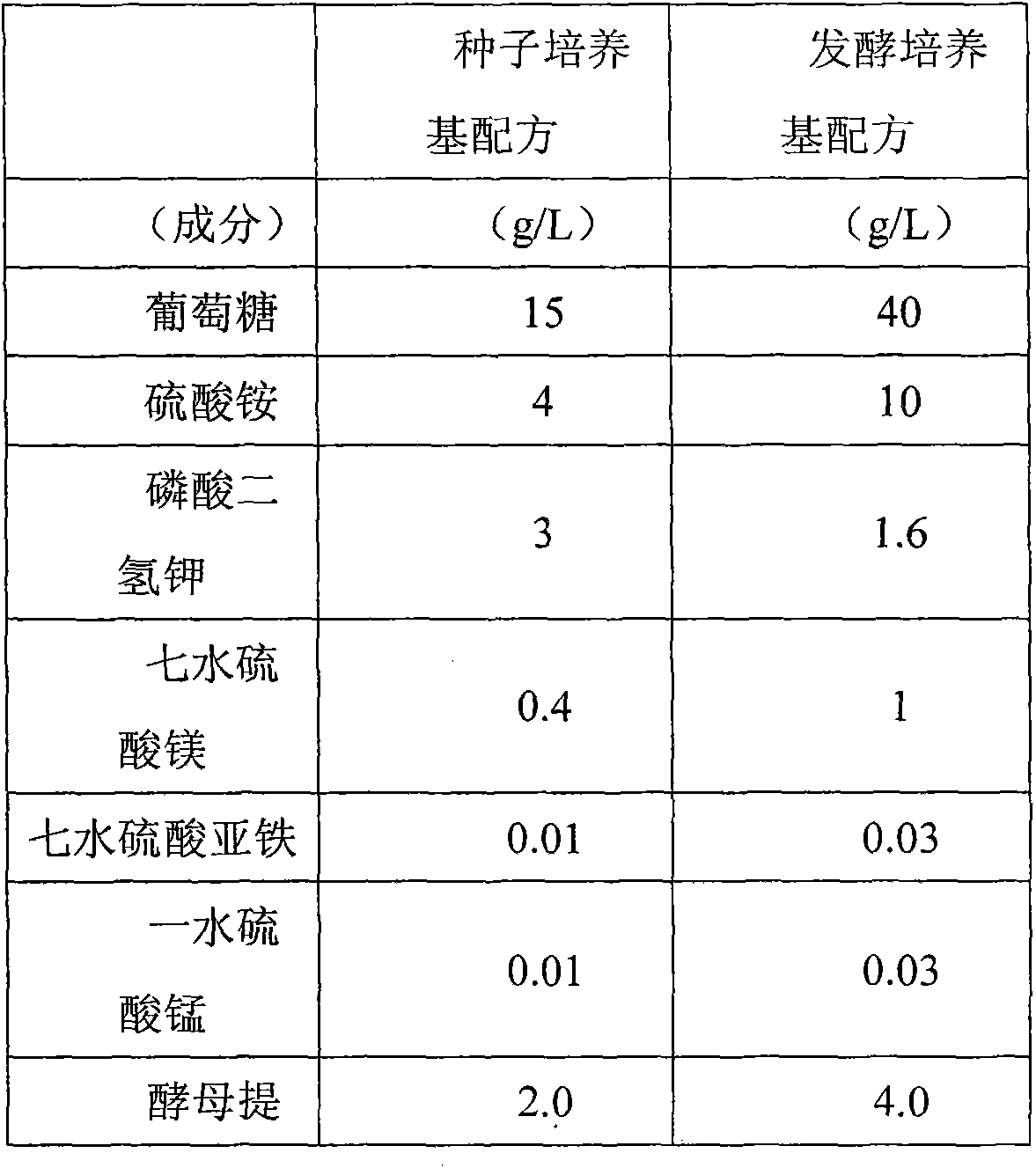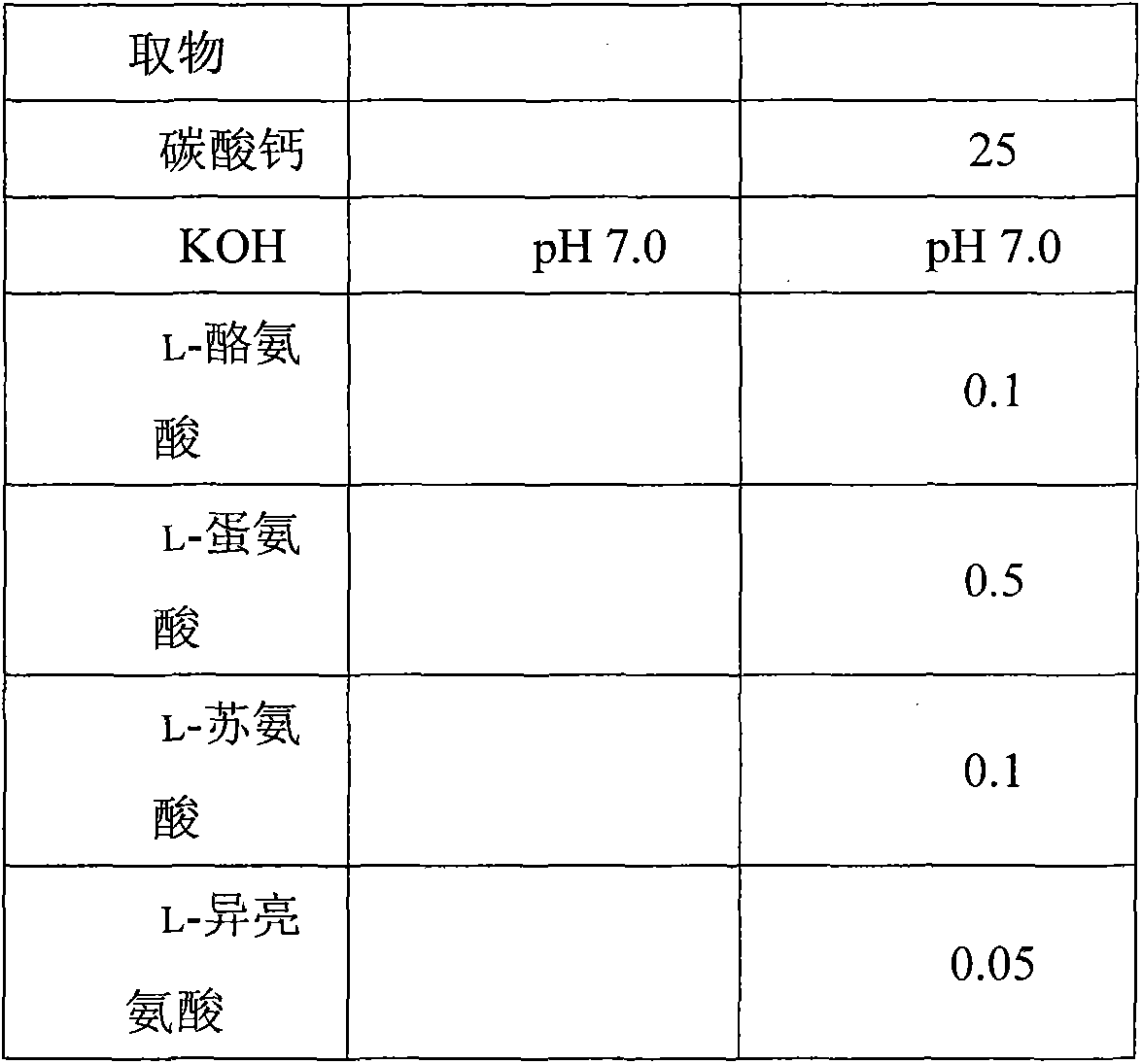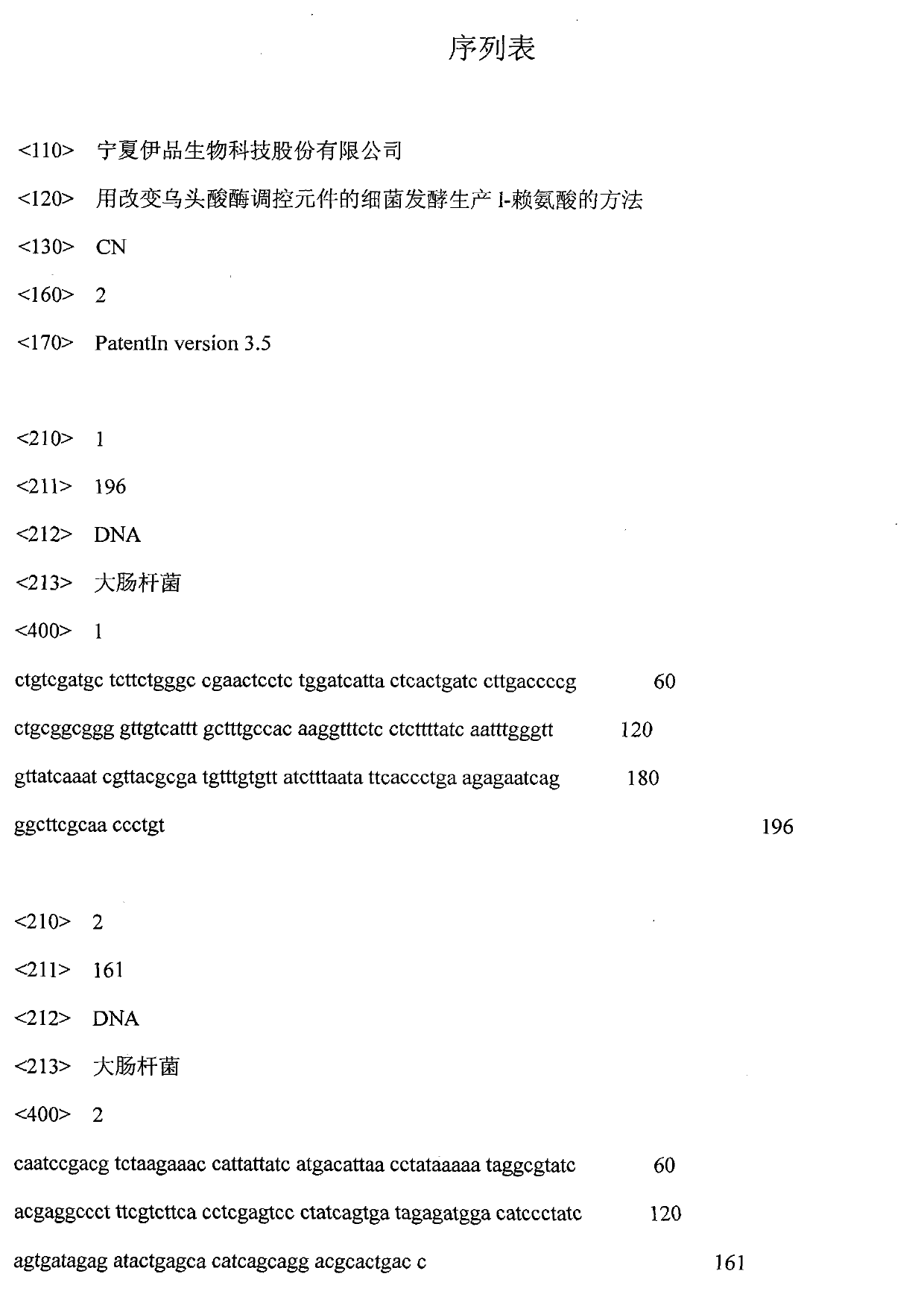Bacteria fermenting and producing L-lysine method by using changed aconitase to regulate and control unit
A regulatory element, aconitase technology, applied in microorganism-based methods, biochemical equipment and methods, bacteria, etc., can solve problems such as difficult practical application, cannot be simply improved or knocked out, and difficulty in bacterial growth of acnA gene , to achieve the effect of increasing production and facilitating promotion and application
Active Publication Date: 2013-06-05
NINGXIA EPPEN BIOTECH
View PDF4 Cites 6 Cited by
- Summary
- Abstract
- Description
- Claims
- Application Information
AI Technical Summary
Problems solved by technology
It is currently known that in Escherichia coli, the acnA gene (its nucleotide sequence is shown in SEQ ID No: 1) encodes aconitase A, but it may be because its metabolism is too far away from the final L-lysine product, There are too many and complex branches of intermediate metabolism, but it has not attracted people's attention in L-lysine fermentation
[0004] After long-term research and practice, especially with some luck, the inventor accidentally found that the transformation of the regulatory elements of the acnA gene can help improve the production of L-lysine Yield; however, the prior art either introduces beneficial enzyme genes with improved expression and/or enzyme activity by increasing copies and/or site-directed mutations, or
Method used
the structure of the environmentally friendly knitted fabric provided by the present invention; figure 2 Flow chart of the yarn wrapping machine for environmentally friendly knitted fabrics and storage devices; image 3 Is the parameter map of the yarn covering machine
View moreImage
Smart Image Click on the blue labels to locate them in the text.
Smart ImageViewing Examples
Examples
Experimental program
Comparison scheme
Effect test
 Login to View More
Login to View More PUM
 Login to View More
Login to View More Abstract
The invention provides a method of fermenting and producing L-lysine. The bacteria fermenting and producing L-lysine method by using changed aconitase to regulate and control a unit comprises the following steps: transforming the regulate and control unit of the wild type of acnA gene on bacteria chromosomes, enabling the expression quantity of the aconitase to lower and not to disappear; and using the transformed bacteria to ferment and to produce the L-lysine. Additionally, the invention further provides a method and application derived from the bacteria fermenting and producing L-lysine method by using changed aconitase to regulate and control the unit, and the bacteria, and the like which can be used in the method and the application.
Description
technical field [0001] The present invention belongs to the field of amino acid fermentation, and in particular, the present invention relates to a method for producing L-lysine by fermentation, a method and application of its derivation, and bacteria that can be used in these methods and applications. Background technique [0002] Production of L-lysine by fermentation of L-lysine-producing bacteria (eg, Escherichia coli of the genus Escherichia and rod-shaped bacteria of the genus Corynebacterium) has been industrially used. These bacteria can be bacteria isolated from nature, bacteria obtained through mutagenesis or genetic engineering, or both. In the current literature reports, the attention of genetic engineering transformation is mainly focused on genes such as pnt, dap and ppc, and there is no focus on encoding aconitase (such as aconitase A) for L-lysine production regulatory elements of genes. [0003] Aconitase is an enzyme in the tricarboxylic acid cycle that c...
Claims
the structure of the environmentally friendly knitted fabric provided by the present invention; figure 2 Flow chart of the yarn wrapping machine for environmentally friendly knitted fabrics and storage devices; image 3 Is the parameter map of the yarn covering machine
Login to View More Application Information
Patent Timeline
 Login to View More
Login to View More IPC IPC(8): C12P13/08C12N15/70C12N1/21C12R1/19
Inventor 马吉银温廷益陈金龙梁勇刘树文魏爱英杨立鹏孟刚任瑞
Owner NINGXIA EPPEN BIOTECH
Features
- R&D
- Intellectual Property
- Life Sciences
- Materials
- Tech Scout
Why Patsnap Eureka
- Unparalleled Data Quality
- Higher Quality Content
- 60% Fewer Hallucinations
Social media
Patsnap Eureka Blog
Learn More Browse by: Latest US Patents, China's latest patents, Technical Efficacy Thesaurus, Application Domain, Technology Topic, Popular Technical Reports.
© 2025 PatSnap. All rights reserved.Legal|Privacy policy|Modern Slavery Act Transparency Statement|Sitemap|About US| Contact US: help@patsnap.com



